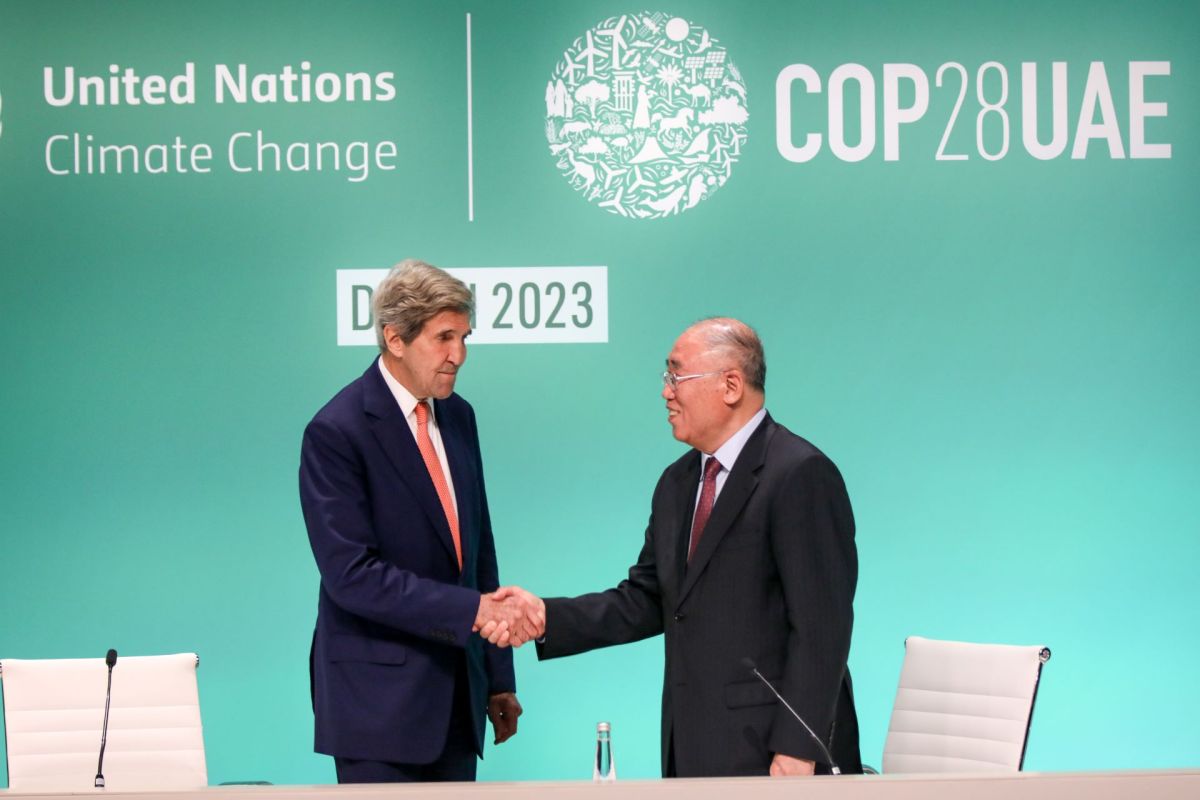At COP28, the annual United Nations-led climate summit, nearly 200 countries just signed onto a historical deal that calls for "transitioning away from fossil fuels in energy systems, in a just, orderly and equitable manner, accelerating action in this critical decade, so as to achieve net zero by 2050 in keeping with the science."
The deal is notable in that it is the first time in the summit's 28-year existence that the dirty energy sources have explicitly been named as the cause of rising global temperatures and increasingly common extreme weather events.
However, there is a vast difference between governments agreeing to do something and actually doing it. The United States, for example, continues to ramp up the mining and burning of dirty energy sources like oil and gas despite having agreed to reach net-zero emissions by 2050.
This is true not just of the United States but of practically all countries that have signed similar pledges in the past. One recent report found that world governments plan to produce more than double the amount of dirty energy in 2030 than would be necessary to curb the effects of our rapidly overheating planet.
The fact that COP28, where the new agreement was signed, was held in the United Arab Emirates, one of the world's leading producers of dirty energy, undermines its credibility considerably. Sultan al-Jaber, the CEO of Abu Dhabi National Oil Company, one of the largest oil companies in the world, was chosen as the conference's president.
Critics of the new agreement, such as former vice president and climate activist Al Gore, pointed to its lack of enforceability and many loopholes that will allow dirty energy producers and users to continue to pollute our planet as much as they wish.
"The decision at COP28 to finally recognize that the climate crisis is, at its heart, a fossil fuel crisis is an important milestone. But it is also the bare minimum we need and is long overdue. The influence of petrostates is still evident in the half measures and loopholes included in the final agreement," Gore said. "Whether this is a turning point that truly marks the beginning of the end of the fossil fuel era depends on the actions that come next and the mobilization of finance required to achieve them."
If you would like to find out what steps you can personally take to influence our government to take meaningful action to address the grave threat that dirty energy poses, please explore our guide to getting involved.
Join our free newsletter for cool news and actionable info that makes it easy to help yourself while helping the planet.









